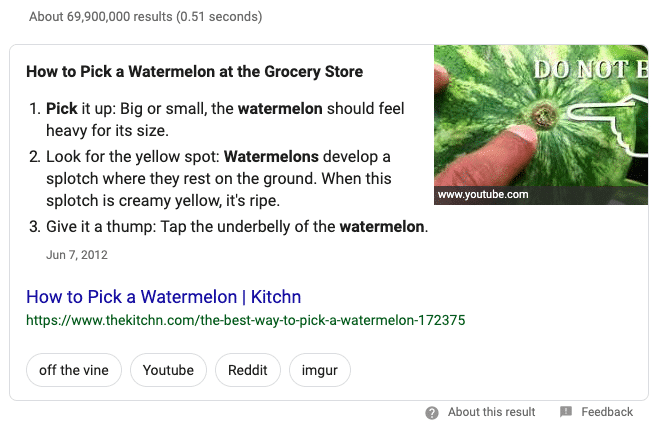How Voice Search Is Changing Healthcare (& Your SEO)
 Love it or hate it, voice technology is here to stay. For those who love it, voice-commanding Siri or Alexa to report on the weather or play a song is kind of a power trip, not to mention ultra convenient. For those who loathe it, the complaints range from difficulty with Alexa's comprehension to fears of eavesdropping tech.
Love it or hate it, voice technology is here to stay. For those who love it, voice-commanding Siri or Alexa to report on the weather or play a song is kind of a power trip, not to mention ultra convenient. For those who loathe it, the complaints range from difficulty with Alexa's comprehension to fears of eavesdropping tech.
From its novel start to its rapid infiltration into more of our lives, voice-enabled tech (or voice assistants) is changing the way we access and use healthcare. In fact, Amazon recently greenlighted six healthcare companies to develop apps for Echo (Alexa), and HIPPA compliant apps are already in the works for several major players.
Related: Amazon Alexa Is HIPAA Compliant: What’s Next?
Here’s Why People Love Voice Search
It’s not perfect now, but more people are getting on board with voice search. Here are just a couple of reasons:
- Users expect instant answers, especially when it comes to healthcare. Voice queries are 40 times more action-oriented than search. (source: Google) Action, in the world of healthcare, is about finding the nearest urgent care or asking where to fill a prescription.
- Voice delivers the conversations people want. If you’ve performed a search using a voice device, you know it’s more conversational than typing a search. For example, when you search for a movie theater on your browser, you might type, “movie theaters Boise.” But when you ask Amazon Alexa, you’ll probably ask in a manner like this: “Alexa, what’s the nearest movie theater near me?”
How Voice Search Is Changing Healthcare
Voice search isn’t perfect, and it’s nowhere near as advanced in its capabilities as it will be in just a few years. But it‘s already affecting the way people search for services and providers.
Here’s another example of voice search that goes deeper in detail: A voice-enabled phone helps patients go from a vague and general search of a “doctor near me,” to asking a more involved, conversational question like: “Hey Google, find a five-star rated orthopedic surgeon near me who does knee replacement.”
Of course, beyond knowing how more patients are searching for information, we have to actually be able to accommodate it.
Be Voice Search Friendly
Is isn’t just yet, but voice will likely become a dominant search method in the future. Preparing for it today will put healthcare providers, systems and organizations at a distinct advantage when that time comes. If you’d rather not venture into this new territory alone, it’s a great idea to partner with an experienced digital marketing team. You’ll be clearly guided through the process of adapting your website and other digital marketing to a voice-enabled data structure that catapults you to the top of voice searches.
But even before you start adding Schema tags to your HTML, there are ways to improve your voice search results.
For organic SEO:
Optimize your Google, Bing and Yelp listings. You can do this by adding photos, hours and a description that’s rich with keywords and service categories. (Plus, you want to make sure this is the same across listings and directories.) If you’ve written an article or a blog about a product or service, try to get listed as a featured snippet. This is the framed preview of information that comes up when you search for a topic.

A featured snippet on Google displays at the top of the search results and is highly impactful for voice search.
Location, location, location: Rank higher on Google maps
When people search for your services, (“Hey Google, find an OB/GYN near me”) where does your practice come up? The higher in Google map results, the better. Your practice’s ranking in Google Maps is grounded in how complete and accurate your Google My Business listing is. This is because Google wants to provide as much information about a business to consumers as possible. The more information you supply, the more facts Google can serve up to searchers, and the more comfortable it will be ranking you higher in results.
To rank higher on Google Maps, scrutinize your profile for complete, accurate and optimized website URL, hours, service categories, positive and negative patient reviews, and average star ratings. Then:
- Submit your listing to as many directories as possible
- Make sure your name, address and phone number (NAP) are consistent across all directories
- Include keywords about your services and product lines in your listing description
- Keep your Google My Business directory current
Don’t have a Google My Business listing? Need help navigating the entire process? We can help.
Can’t You Just Hear the Marketing Opportunities Now?
What’s next in the voice-enabled technology arena is virtually limitless. My theory is that once it becomes the search mode of choice, marketers will find a way to profit from it. Think of the sponsored ad format on the big three search engines, and apply that same execution to voice. Now when someone searches for the services you provide, that potential patient receives a conversational response from your practice—giving the user that instant solution, through conversation, they’re looking for.
Consider the possibilities of voice search (and later, voice sponsored content) especially if you’re an urgent care, ER, primary care or hospital. With a forward-looking strategy and careful budget planning, you can be ready for the ultra-consumer friendly, provider-profitable voice on a whole new level.
Related Articles:
Search By Voice Is Taking Over: Why 2017 Is The Year of Voice Search
How Healthcare SEO Has Changed The Past Decade and What’s Ahead
The Evolution of Search & Its Impact on SEO
Does SEO Really Matter for Healthcare?
The Ultimate Guide to Healthcare SEO: 3 Techniques Your Website's Organic Marketing Needs









